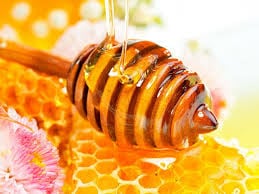“The manufacturing segment is outside of the association’s initial scope because it would constitute a pretty substantial independent project,” True Source Honey chairman Eric Wenger, who is also chief operating officer of Golden Heritage Foods LLC, told FoodNavigator-USA.
“If you have an ingredient manufacturer who can source from a variety of suppliers, you have to have an audit function in place that all the honey was coming from a certified North American packer. We're certainly open to it, but we haven't had any requests from large manufacturers yet.”
The US imports more than 60% of the honey it needs from other countries. Most is legally sourced, but some honey brokers and importers illegally circumvent tariffs and quality controls, selling honey to US companies that is of questionable origin (and undercutting fair market prices). Earlier this year, two of the nation's largest honey suppliers admitted to buying illegally imported Chinese honey, including some that was adulterated with unauthorized antibiotics.
Currently, about one-third of honey sold in North America today is True Source certified, based on Wenger’s estimate of all of the packers that are participating and the total volume they represent. Many large grocery retailers and club stores only use certified honey for their private-label brands, including Costco (Kirkland Signature) and Target (Market Pantry and Simply Balanced).
A business-specific consideration
It would take interest from a big player, a la Post or Kellogg, for the association to pursue a manufacturer-focused certification system. To date, the association has fielded requests from several smaller ingredient users, said Wenger.

“It’s very much a business case consideration. Right now, it is most strongly appreciated at the retailer level. They understand the dynamics and risks and want to ensure they don’t purchase circumvented honey. Because they are selling direct to consumers, there’s an awful lot of value in the confidence that the honey was ethically, transparently sourced."
Manufacturers, on the other hand, have several additional layers of value to consider when mulling honey verification.
“Manufacturers have to assess the potential value of the claim to their business. They also have to consider label space. How important is honey to them, and would consumers value that kind of declaration from them?”
But given the increase in consumer inquiries over the last two years in the wake of news media coverage of circumvented honey, Wenger said he thinks it is becoming increasingly of value to consumers across the board.
“Our perspective, regardless of whether we’re talking about manufacturers, retailers or consumers—is that everyone inherently wants assurance they are being honestly, ethically dealt with. Nobody wants to be deceived.”
